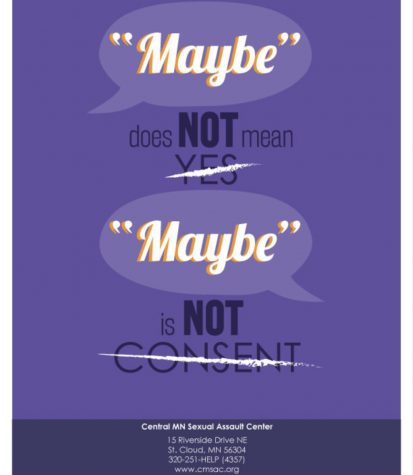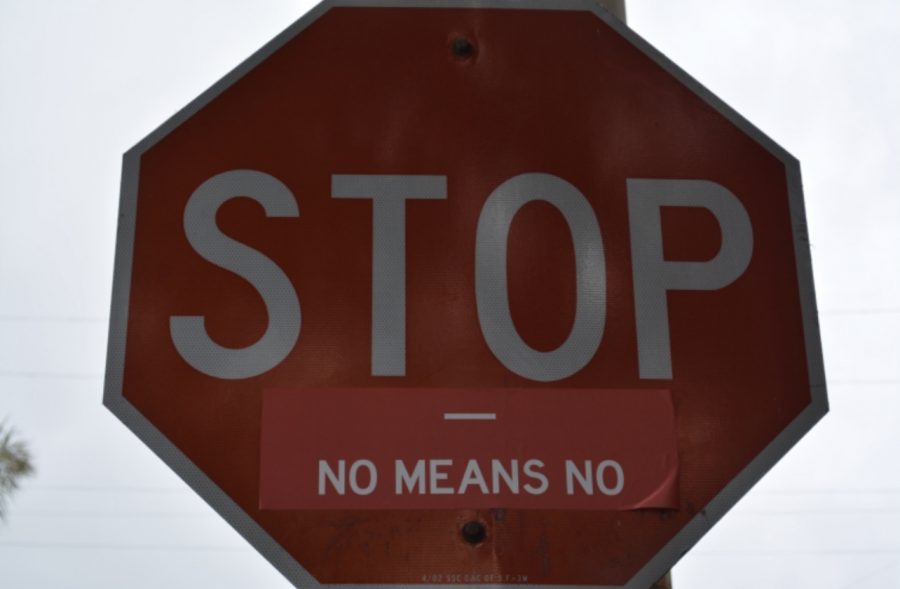“Just Say No.”
December 2, 2021

“Just say no”, is common phrase women and men have heard amid the awareness being brought to the harassment that women and men have and continue to go through. The experiences that they often experience are often dumbed down by many by turning the fault to the victims. Victims are constantly faced with questions like, “Why did you hold eye contact?”, “Why were you wearing that outfit? You were asking for attention”, “You could’ve pushed her off”, “You’re supposed to like it, and phrases like “Just say no.”
This is, sadly, a common occurrence in high schools. In fact, in 2016 at a school in Boston a group of girls staged a walkout protest over exactly this. They were protesting what they called, “a culture of sexual violence”. A similar protest happened in Colorado, but this time the protest was mostly in response to online sexual harassment. Studies site the negative effects of such harassment as lack of sleep, increased rates of depression, trouble concentrating, and school absenteeism.
While a recent study at the Harvard Graduate School of Education found that 87% of 18-25-year-olds “reported that they had been the victim of at least one form of sexual harassment” I wanted to see how pervasive this was at a high school level. It was impossible to survey all students so instead I chose to interview a few students – not to suggest that this is happening to everyone, but to acknowledge that even one case of sexual harassment is a problem. I hope to bring awareness to this issue and remind others that they are not alone. And I encourage anyone (as I did each of my interviewees) to report any case of harassment to a trusted adult on campus.
Has someone ever continued to press you for some sort of contact information (phone number, Instagram, Snapchat, etc.) even after you said no to their first advance?
One student told the story of her freshman year where a senior pursued and followed her around the whole school after being rejected, “every time I’d go somewhere he would be there and kept asking me.” Another student said that most of the time she has gotten harassed like this was on Snapchat where messages are, the majority of the time, only seen by the sender and receiver. Two interviewees told the same story where a guy kept insisting that she would give him her contact information even after her telling him that she had a boyfriend in hopes that he would leave her alone.
Have you/did you give this person any information because you felt pressured and uncomfortable in the situation?
The interviewee who was targeted through Snapchat shared that she has given some sort of contact information to a guy because she felt pressured and wanted out of the situation. Why couldn’t he have handled the rejection and simply moved on? Did he feel fulfilled with the fact that he got a girl’s social because he pressured her? Because of the pressure felt on these occasions, victims often share their information which only leads to another creep having their hands on vulnerable information.
Did you question your safety after saying no continuously?
The interviewees collectively had the same response to the question, the response is that they did feel unsafe and uncomfortable. One classmate said, “I usually question my safety around people in general but guys that I don’t know that can’t take no for an answer are usually on my highest alert.” A student responded by saying that these situations can most certainly be a question to a women’s safety because one does not know if the person rejected will follow them or plan to use a different method to get what they want.
To conclude the interview I asked my classmates how these situations made them feel in general. Dania Haqi (12) says, “It makes me feel disgusted and disappointed that people my age and older don’t have the common sense to be decent and move along with their day. It also makes me extremely nervous and uncomfortable because you never know what a guy could do.” Another senior student said that these scenarios make her feel like, “property and a toy. I understand how they are looking at me, like something to touch. I feel like a sexual object.”
It’s disappointing that these young women were made to feel like sexualized objects due to a person’s struggle to accept rejection. How can individuals feel safe in their response if others’ fragile egos can’t take an ounce of rejection? These occurrences have dimmed the light to a society of respect and boundaries.
While I acknowledge that I only interviewed women, I want to be clear that sexual harassment IS NOT just something that happens to women. All sexes and genders can and do experience sexual harassment. For the purpose of this article though, I wanted to focus solely on other girls, just like me. I again want to emphasize the fact that men also go through similar experiences that the girls I interviewed went through, in fact, a survey conducted by the American Association of University Women revealed that 78% of boys have been sexually harassed among 2064 students between 8th-11th grade.
Instead of pushing the phrase, “Just say no”, down people’s throats, we should implement that NO means NO. Even with a large amount of awareness on sexual harassment and how important consent is, this is still a fault in human decency. Along with implementing this, I believe that sexual harassment should be discussed more within K-12 schools. Most student sexual harassment statistics are from college students, but sexual harassment is just as much prominent within middle schools, high schools, etc. Reports on sexual assault in K-12 schools have increased from about 9,600 in the 2015-2016 school year to nearly 15,000 in the 2017-2018 school year.
In the same article where this information is reported, it says, “Unlike colleges, where students often get training or information about where to go to report a sexual assault, grade school students might not know who to tell.”. In my almost 4 years in high school, I have only seen a few posters regarding sexual harassment in shadowed places and a short talk about it during freshman orientation. Personally, I have not heard nor seen school administration emphasize the reoccurring problem of sexual harassment other than what I stated and this is something that should be talked about and changed. It should be important for k-12 schools to recognize the importance of reporting these occurrences to trusted individuals as well as emphasizing that students know they are attending a school that takes these events seriously.
No means no.












